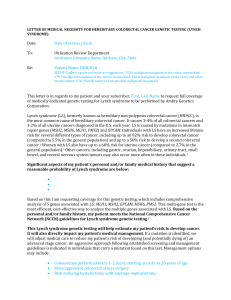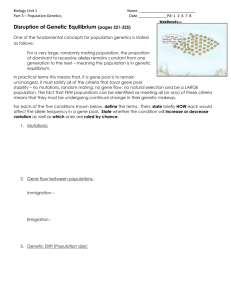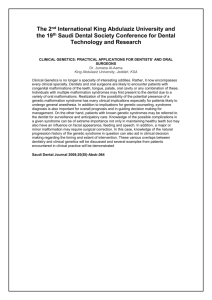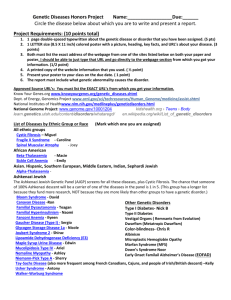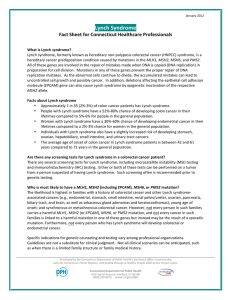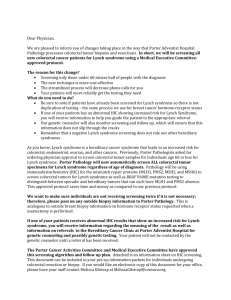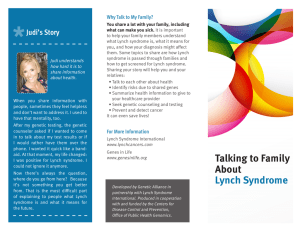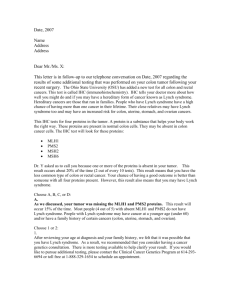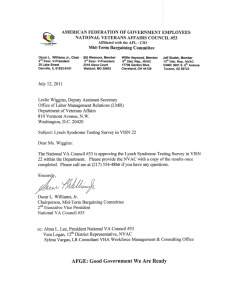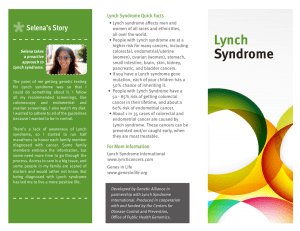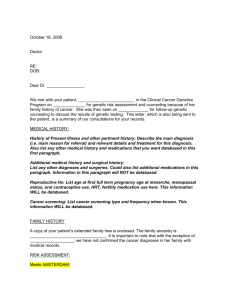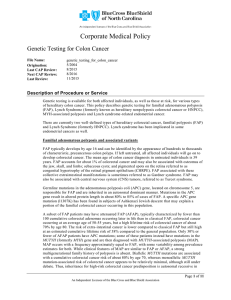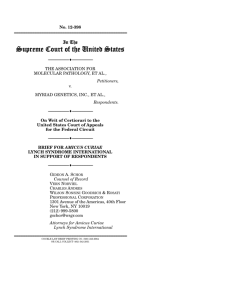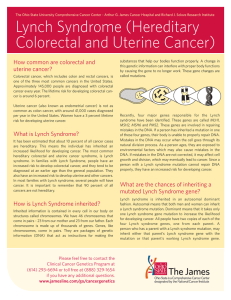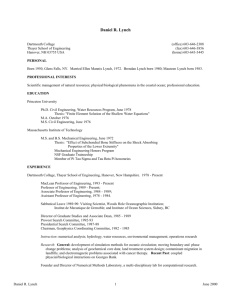HNPCC_Fam_Letter - Lynch Syndrome Screening Network
advertisement
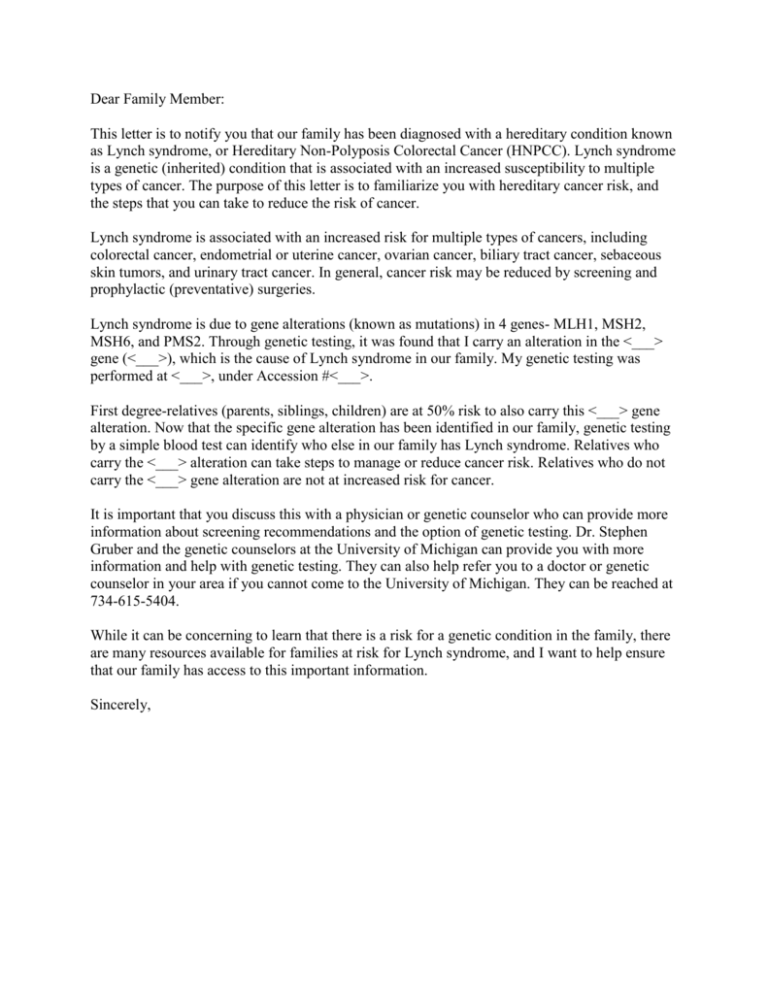
Dear Family Member: This letter is to notify you that our family has been diagnosed with a hereditary condition known as Lynch syndrome, or Hereditary Non-Polyposis Colorectal Cancer (HNPCC). Lynch syndrome is a genetic (inherited) condition that is associated with an increased susceptibility to multiple types of cancer. The purpose of this letter is to familiarize you with hereditary cancer risk, and the steps that you can take to reduce the risk of cancer. Lynch syndrome is associated with an increased risk for multiple types of cancers, including colorectal cancer, endometrial or uterine cancer, ovarian cancer, biliary tract cancer, sebaceous skin tumors, and urinary tract cancer. In general, cancer risk may be reduced by screening and prophylactic (preventative) surgeries. Lynch syndrome is due to gene alterations (known as mutations) in 4 genes- MLH1, MSH2, MSH6, and PMS2. Through genetic testing, it was found that I carry an alteration in the <___> gene (<___>), which is the cause of Lynch syndrome in our family. My genetic testing was performed at <___>, under Accession #<___>. First degree-relatives (parents, siblings, children) are at 50% risk to also carry this <___> gene alteration. Now that the specific gene alteration has been identified in our family, genetic testing by a simple blood test can identify who else in our family has Lynch syndrome. Relatives who carry the <___> alteration can take steps to manage or reduce cancer risk. Relatives who do not carry the <___> gene alteration are not at increased risk for cancer. It is important that you discuss this with a physician or genetic counselor who can provide more information about screening recommendations and the option of genetic testing. Dr. Stephen Gruber and the genetic counselors at the University of Michigan can provide you with more information and help with genetic testing. They can also help refer you to a doctor or genetic counselor in your area if you cannot come to the University of Michigan. They can be reached at 734-615-5404. While it can be concerning to learn that there is a risk for a genetic condition in the family, there are many resources available for families at risk for Lynch syndrome, and I want to help ensure that our family has access to this important information. Sincerely,


